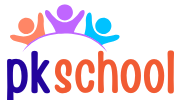Imagine navigating a world where reading transformed not just individual lives, but entire communities. Sounds enticing, right? A Master’s in Reading and Literacy isn’t just a degree, it’s a key that unlocks doors to growth, understanding, and opportunity. With stats showing that literacy opens pathways to better jobs and healthier lives, diving into this field isn’t merely beneficial: it’s almost a public service. Let’s explore why mastering reading and literacy is not just wise, but essential.
Table of Contents
ToggleUnderstanding The Importance Of Reading And Literacy

The Role of Reading In Cognitive Development
Reading serves as the launchpad for cognitive skills. Engaging with diverse texts encourages critical thinking and creativity: it’s more than just words on a page, there’s depth there. Kids, for example, build vocabulary by exploring literature, leading to enhanced communication skills.
Cognitive development thrives within a framework of exposure to language. Studies affirm that individuals who read regularly exhibit greater empathy and improved problem-solving abilities. In essence, reading is like a gym for the brain, repeated engagement strengthens cognitive muscles.
Literacy As A Foundation For Lifelong Learning
Literacy extends beyond academic achievement: it lays the groundwork for lifelong learning. The world has shifted dramatically into a digital environment, making strong literacy skills crucial. Proficient readers adapt easily to new information, guiding them through the maze of modern knowledge.
Also, it’s not just about the basics. Literacy enables individuals to engage actively in society, from understanding policies to participating in community discussions. A literate society cultivates informed citizens, capable of making well-rounded decisions.
Overview of Masters Programs In Reading And Literacy
Types of Programs Available
Masters programs in reading and literacy vary widely, catering to different needs and career goals. Traditional tracks often focus on educational pedagogy, while specialized programs might investigate into literacy technology or reading recovery strategies. In a world where children and adults alike can face reading challenges, having these specialized programs can make a real difference.
Online options are also increasingly popular. Flexible schedules and accessible coursework make it easier for working professionals to pursue their passion without sacrificing their day jobs. So, whether one prefers the structure of a classroom or the flexibility of digital learning, there’s likely a program that fits the bill.
Key Curriculum Components
When enrolled, students can expect to tackle various subjects including literacy assessment, research methods, and family engagement in literacy. This multifaceted approach equips educators with the skills needed to tackle observable literacy challenges.
Besides, emerging trends in literacy, such as the use of digital tools to enhance reading skills, form a critical aspect of modern curricula. Stay ahead of the curve: understand how technology can amplify success in literacy instruction.
Accreditation And Program Quality
Accreditation matters in education: it’s the gold standard that assures program quality. Seek programs accredited by reputable organizations, such as the International Literacy Association or the Council for the Accreditation of Educator Preparation. Such credentials not only elevate the institution but also enhance a graduate’s resume when applying for teaching roles.
Career Opportunities After Completing Your Degree
Teaching Positions In Various Educational Settings
Graduates with a Master’s in Reading and Literacy often find roles in various educational settings, including public and private schools, adult education centers, and even online platforms. They typically teach students the essential reading skills they need to thrive academically and personally.
Also, these educators play a crucial role in creating tailored reading programs that cater to diverse learning styles. Their expertise allows them to provide individualized support, providing students enriching experiences that lead to success.
Specialized Roles In Literacy Instruction
Beyond traditional teaching roles, numerous specialized positions await those with advanced degrees. Literacy coaches guide instructors while curriculum specialists develop innovative strategies to improve reading instruction district-wide. Together, they form a network that promotes literacy at all educational levels.
Positions such as reading interventionists also become available, allowing them to help struggling readers develop the foundational skills necessary for academic achievement. This specialized instruction can be crucial, transforming lives one reader at a time.
Advancement Into Administrative Positions
For those interested in administration, this degree can also pave the way for leadership roles, such as literacy program directors or educational administrators. These positions often involve shaping district-wide policies and implementing instructional strategies at the macro level.
Not only do they get to influence reading initiatives directly, but they also empower other educators to share their passion for literacy with students. Advancement into roles focused on educational policy can offer a broader impact, cultivating literacy on a grander scale.



